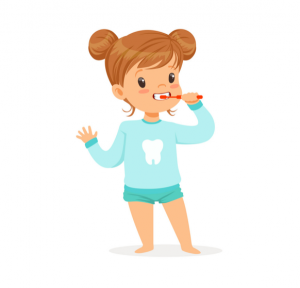Intervention Strategies

Tip of the Week: INDEPENDENCE
Since we are all home right now and with our kids 24/7, it’s a good time to focus on increasing independence with daily living skills. Beginning to teach these skills as early as possible will create building blocks for that individual as they get older and need to develop even greater independence. By helping your child to develop greater independence with daily living skills, you will help increase their self-esteem and overall happiness. Below are some tips to help guide you in teaching your child independence.
Visual schedules:
Use a checklist with pictures or text that your child can use to let them know what step to do next and cross off the ones that they have completed. This will help your child to not have to rely on you to tell them what to do next and will help build routines into their life. Below is an example. Here is a link to some free premade visual schedules, but feel free to reach out to your clinical supervisor if you need a customized schedule created.
Task Analyses:
Break down the skill into small teachable steps that you teach your child to follow in that order. This will build the routine and make sure that the task is done thoroughly.
Prompting:
Help your child to complete each step of the skill correctly by providing them with assistance and then gradually fade yourself out to build the independence. It is typically recommended to avoid verbal prompts (e.g. saying “turning on the sink”) and to use physical prompts instead (e.g. guiding their hands silently to turn on the sink). You can guide them physically from behind (as to not insert yourself into the routine) and then, as they start to show more initiation of that step of the task, fade your prompting out. You may need to prompt some steps more than others. So, for example, you may need to still guide your child’s hand to brush their teeth thoroughly, but can fade out your prompting for putting toothpaste on the toothbrush. The goal is to fade out all prompting entirely.
Video Modeling:
Research has shown that using a video of an expert doing the skill that you would like your child to learn can help them establish the skill. There are plenty of video models online (like this one: brushing teeth video model), but BAC is happy to create video models for you, or you can create one yourself.
Use Reinforcement:
Reinforcement is key in teaching independence with daily living skills (and all skills!). You may have to provide a lot of reinforcement in the beginning and can later fade it out. So, at first, you can reinforce each step of the task that your child completes and then later, you can provide reinforcement only after s/he completes the whole task.
